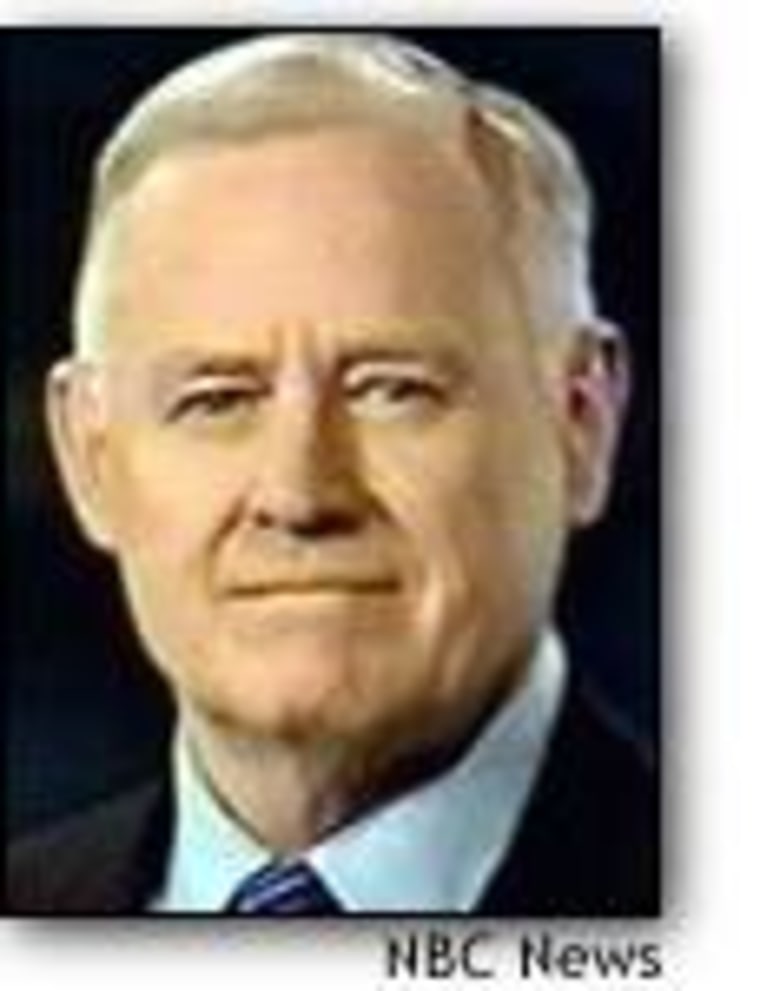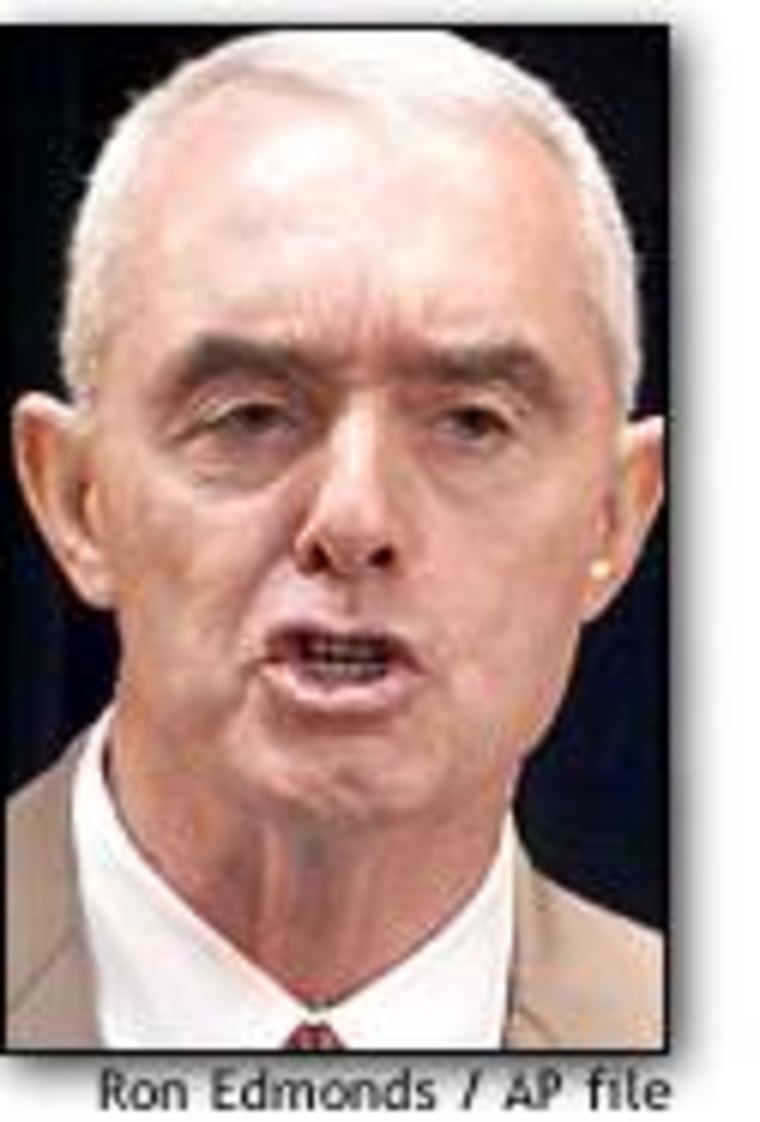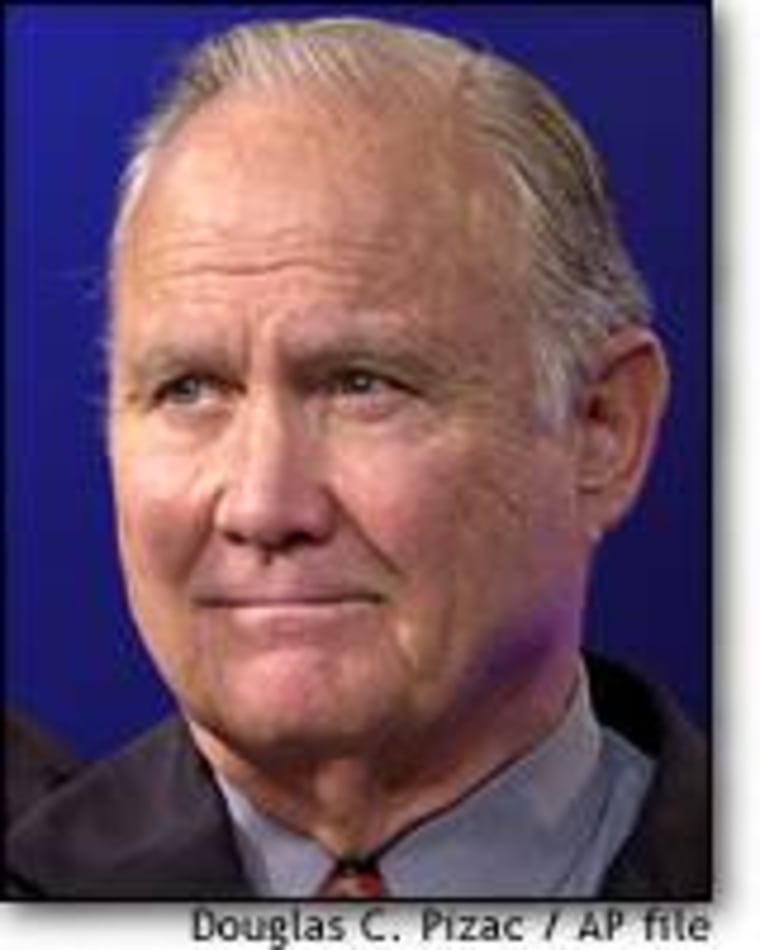Scroll below to read the biographies MSNBCs military analysts and experts.
COL. KEN ALLARD
Ken Allard is a well-known commentator on international security issues. His military career as an operational intelligence officer included service on the faculty of the U.S. Military Academy as special assistant to the Army Chief of Staff and as dean of students at the National War College. In 1996, he served on special assignment with the U.S. 1st Armored Division in Bosnia. A noted author and lecturer, Allard’s many publications include two books: “Somalia Operations: Lessons Learned” and “Command, Control and the Common Defense,” which won the 1991 National Security Book Award. Allard holds a Ph.D. from the Fletcher School of Law and Diplomacy and an M.P.A. from Harvard University.
WILLIAM ARKIN
William M. Arkin is a former Army intelligence analyst and consultant. He has written extensively about military affairs, including several books on the topic. Arkin is a senior military adviser to Human Rights Watch and an adjunct professor at the School of Advanced Airpower Studies of the U.S. Air Force. He’s also columnist and correspondent for The Los Angeles Times, washingtonpost.com and Bulletin of the Atomic Scientists.
GEN. WAYNE DOWNING

As commander of a Joint Special Operations Task Force assigned to U.S. Central Command during Desert Storm, Gen. Downing planned and led operations in support of the coalition war effort. He is a highly decorated combat veteran with two combat tours in Vietnam and service in both Operation Just Cause in Panama and Operation Desert Storm.
Recently, he was picked to head up the new White House Office for Combating Terrorism, a new arm of the National Security Council.
With almost 34 years of active military experience, Downing is recognized as a top authority on combating terrorism. Downing also served on a 10-person, high-profile commission, led by former U.S. Ambassador-at-Large for Counter-Terrorism L. Paul Bremer, which last year called on the U.S. government to prepare more aggressively against a future terrorist attack that may employ biological, chemical, nuclear, or radiological materials. Downing previously commanded the U.S. Special Operations Command and the Army 75th Ranger Regiment.
LT. COL. RICK FRANCONA
Lt Col Rick Francona enlisted in the Air Force in 1970, and served as a Vietnamese linguist until 1973, conducting missions over Vietnam and Laos. After Arabic language training, he served at a variety of locations in the Middle East from 1975 to 1977, and supported the evacuation of the U.S. Embassy in Beirut, Lebanon in 1976. In 1978, he became an Arabic language instructor at the Defense Language Institute in Monterey, California.
Following his commissioning in 1979, Lt Col Francona was an instructor at the Air Force intelligence school in Denver, Colorado. From 1982 to 1984, he was a Middle East operations officer with the National Security Agency. In 1984, he was assigned as an advisor to the Royal Jordanian Air Force in Amman, Jordan.
In 1987, he was assigned to the Defense Intelligence Agency as the assistant Defense Intelligence Officer for the Middle East. During this assignment, he spent much of 1987 and 1988 at the U.S. Embassy in Baghdad, Iraq, as a liaison officer to the Iraqi armed forces directorate of military intelligence. Lt Col Francona traveled extensively as an observer of Iraqi combat operations against Iranian forces, and flew sorties with the Iraqi air force.
Immediately following the Iraqi invasion of Kuwait in August, 1990 and through the Gulf War, Lt Col Francona was deployed to the Gulf as the advisor on Iraqi armed forces and personal interpreter to commander in chief of the U.S. Central Command, General Norman Schwarzkopf. As such, he was the lead interpreter for ceasefire talks with the Iraqi military at Safwan, Iraq, in March, 1991.
At the end of the Gulf War, he served in the Office of the Secretary of Defense, and was a principal author of the Department of Defense report to Congress on the conduct of the Gulf war. From 1995 to 1996, Lt Col Francona served with the Central Intelligence Agency, and participated in a variety of sensitive operations in the Middle East. During one of these operations, he survived an attempt on his life by Iraqi intelligence service agents.
Lt. Col. Francona has a bachelors degree in government and the Arabic language, and a masters degree in international relations with a concentration in Middle East studies.
DANIEL GOURE
Dr. Goure is a Vice President with the Lexington Institute, a nonprofit public-policy research organization headquartered in Arlington, Virginia. He is involved in a wide range of issues as part of the institute’s national security program. Most recently, Dr. Goure was a member of the 2001 Department of Defense Transition Team. Dr. Goure spent two years in the U.S. Government as the director of the Office of Strategic Competitiveness in the Office of the Secretary of Defense. He also served as a senior analyst on national security and defense issues with the Center for Naval Analyses, Science Applications International Corporation, SRS Technologies, R&D Associates and System Planning Corporation. Dr. Goure holds Masters and Ph.D. degrees in international relations and Russian Studies from Johns Hopkins University and a B.A. in Government and History from Pomona College.
COL. JACK JACOBS
Jack Jacobs was born in Brooklyn, New York. He holds Bachelor’s and Master’s degrees from Rutgers University and entered the U.S. Army in 1966 as a Second Lieutenant through the ROTC program. He served as a platoon leader in the 82nd Airborne Division, executive officer of an infantry battalion in the 7th Infantry Division, and commanded the 4th Battalion 10th Infantry in Panama. A member of the faculty of the US Military Academy, Jacobs taught international relations and comparative politics for three years, and he was a member of the faculty of the National War College in Washington, DC. He was in Vietnam twice, both times as an advisor to Vietnamese infantry battalions, and he is among the most highly decorated soldiers from that era, having earned three Bronze Stars, two Silver Stars and the Medal of Honor, the nation’s highest combat decoration.
Jacobs retired as a Colonel in 1987. He was a founder and Chief Operating Officer of AutoFinance Group Inc, one of the firms to pioneer the securitization of debt instruments; the firm was subsequently sold to Key Bank. He was a Managing Director of Bankers Trust, where he ran foreign exchange options worldwide and was a partner in the institutional hedge fund business. He retired in 1996 to pursue investments. He is a principal of The Fitzroy Group, a firm that specializes in the development of residential real estate in London and invests both for its own account and in joint ventures with other institutions. He serves on a number of charitable boards of directors and is the Vice Chairman of the Congressional Medal of Honor Foundation. He holds the McDermott Chair of Humanities and Public Affairs at the US Military Academy and is a member of the Council on Foreign Relations.
GEN. BARRY MCCAFFREY

One of the great military leaders of our time, General Barry McCaffrey was, at retirement from active duty, the most highly decorated and youngest four-star general in the U.S. Army. He was commander of the 24th Mechanized Infantry Division during Operation Desert Storm, served as assistant to Colin Powell and supported the chairman as Joint Chiefs of Staff advisor to the secretary of state.
General Barry McCaffrey is also the Olin Distinguished professor of National Security Studies at West Point and head of a consulting firm specializing in international security issues. McCaffrey is an expert in world trouble spots, military preparedness, homeland security, leadership and the impact of illegal drug use on all aspects of culture. He was twice awarded the nation’s second highest award for valor — the Distinguished Service Cross, and received three Purple Heart medals for wounds received in combat.
GEN. MONTGOMERY MEIGS
General Montgomery C. Meigs became the Commander of the Stabilization Force in Bosnia-Herzegovina on October 23, 1998. He served as the Commanding General, United States Army Combined Arms Center and Commandant of the Army’s Command and General Staff College, Fort Leavenworth, Kansas since August 1997. General Meigs graduated from the United States Military Academy at West Point, New York, in 1967 with a bachelor of Science Degree. He has a Ph.D. in history from the University of Wisconsin. His awards include the Distinguished Service Medal, the Bronze Star Medal with V device, and the Purple Heart.
GEN. NORMAN SCHWARZKOPF

General Schwarzkopf is best known for his services as Commander in Chief, United States Central Command, and Commander of Operations of Desert Shield and Desert Storm during the 1991 Persian Gulf War. He continued to lead military operations in that region until he retired in August 1991.
Since his retirement, he has spoken extensively on America’s defense strategy and authored an autobiography, It Doesn’t Take a Hero. He also has served on several boards dedicated to conservation and public health, including serving as a national spokesman for prostate cancer awareness and chairing a march for the National Coalition for Cancer Survivorship.
During his military career, General Schwarzkopf was awarded many honors, including three Silver Stars, three Bronze Stars, and the Presidential Medal of Freedom.
